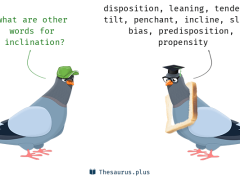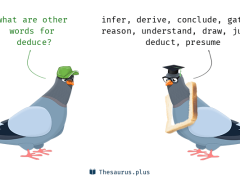goodwill [ˈɡudwil] n. 友好
【扩】friendship 友好
* * *
A: Goodwill is an invisible asset to a business.
B: Yes, it will help us to conclude the transaction.
A:友好关系对于一桩生意来说是一种无形的资产。
B:是的,它能帮我们达成交易。
* * *
cricket [ˈkrikit] n. 板球
* * *
A: Cricket is a minority sport here.
B: But it's very popular in our country.
A:板球在这儿是少数人喜爱的运动。
B:但在我们国家它却很受欢迎。
* * *
inclination [ˌinkliˈneiʃən] n. 意愿
【扩】willingness 意愿
* * *
A: I don't have the inclination to do that.
B: But you have to do it, because it's very important.
A:我没有意愿去做那件事。
B:但你必须去做,因为这很重要。
* * *
contest [ˈkɔntest] n. 比赛
* * *
A: What I want to know is who is the winner of the contest.
B: I don't know it, either.
A:我想知道的是谁赢得了比赛。
B:我也不知道。
* * *
orgy [ˈɔːdʒi] n. 无节制,放荡
【扩】libertinism 放荡 debauchery 放荡
* * *
A: They embarked on an orgy of spending.
B: Why didn't you stop them?
A:他们开始无节制地花钱。
B:你为什么不阻止他们?
* * *
deduce [diˈdjuːs] v. 推断
competitive [kəmˈpetitiv] adj. 竞争性的
【派】competitively 竞争地
* * *
A: We are incomparable in price.
B: Yes, you are really very competitive.
A:我们的价格无人能比。
B:是的,你们的确很有竞争力。
* * *
patriotism [ˈpætriətizəm] n. 地方观念,爱国主义
disgrace [disˈɡreis] v. 使丢脸
【派】disgraceful 可耻的
【扩】give a black eye to 使丢脸
【搭】bring grace on 给……带来耻辱
* * *
A: He disgraced himself by passing out at the party.
B: He should pay attention to his behavior in public.
A:他因在宴会上醉倒而使自己丢脸。
B:在公共场合的时候他应该注意自己的行为。
* * *
savage [ˈsævidʒ] adj. 野性的
combative [ˈkɔmbətiv] adj. 好斗的
【派】combativeness 好战
【扩】pugnacious 好斗的 bellicose 好斗的
【例】He has denied the charges and sustained an upbeat and combative public image.
他否认了这些指控,并保持了积极、好斗的公众形象。
mimic warfare [ˈmimik-ˈwɔːfeə] 模拟战争
behaviour [biˈheiviə] n. 行动,举止
【扩】deportment 举止,行为
* * *
A: There is something strange about Mr. Chen's behaviour today.
B: What's wrong with him?
A:陈先生今天举止有点怪。
B:他出什么事了?
* * *
absurd [əbˈsəːd] adj. 荒唐的
noun [抽象名词]友善,善意;(公司的)信誉 - I invited them to dinner, a gesture of goodwill.
noun [专属名词]【名】 (Goodwill)(英)古德威尔(人名) - Goodwill invited them to dinner, a gesture of goodwill.
noun [专属名词]蟋蟀;板球(运动) - During the summer term we would play cricket at the village ground.
noun [抽象名词]倾向,意愿;趋向,趋势;斜坡,斜度;轻微向下的动作;轨道交角 - He had neither the time nor the inclination to think of other things.
noun [抽象名词]比赛,竞赛;争夺,竞争;争论,争执 - A contest is a struggle to win power or control.
verb [vt. 及物动词]争辩,提出异议;争取赢得,角逐 - If someone contests an election or competition, they take part in it and try to win it.
noun [抽象名词]狂欢;放荡 - It was reminiscent of a scene from a Roman orgy.
verb [vt. 及物动词]推断,演绎;<古>对…追本溯源 - Alison cleverly deduced that I was the author of the letter.
adjective [原级]竞争的;好竞争的,好胜的;有竞争力的 - It's hard to maintain competitive pricing.
noun [抽象名词]爱国主义,爱国精神 - He was a country boy who had joined the army out of a sense of patriotism and adventure.
noun [抽象名词]耻辱,不光彩; 令人感到羞耻的人(或事),不名誉的事;失宠 - If you say that something is a disgrace, you are emphasizing that it is very bad or wrong, and that you find it completely unacceptable.
verb [vt. 及物动词]使丢脸,使蒙受耻辱;使名誉扫地,使失势 - If you say that someone disgraces someone else, you are emphasizing that their behaviour causes the other person to feel ashamed.
bring shame / disgrace on ... 名词更正式、庄严
- You will bring disgrace on yourself by doing this. 她的行为给她的家庭带来了耻辱。
- You will bring shame on yourself by doing this. 你这样做会给自己带来耻辱。
adjective [原级]凶猛的,残暴的;猛烈的,恶狠狠的;极严重的,大幅度的;<旧>未开化的,野蛮的;(土地)荒凉的,无人烟的 - This was a savage attack on a defenceless young girl.
noun [专属名词]<旧>未开化的人,野蛮人; 凶狠残暴的人;(纹章)长须半裸带叶环男人形 - ...their conviction that the area was a frozen desert peopled with uncouth savages.
verb [vt. 及物动词](动物)凶猛攻击,撕咬; 激烈抨击,猛烈批评 - The animal then turned on him and he was savaged to death.
noun [专属名词]【名】 (Savage)(西)萨瓦赫,(英、德)萨维奇(人名) - Savage was savagely beaten.
adjective [原级]好战的,好争论的 - He conducted the meeting yesterday in his usual combative style, refusing to admit any mistakes.
noun [专属名词]模拟战争 - At the international level sport is frankly mimic warfare.
noun [抽象名词]行为,举止,态度;活动方式,特点,特性;习惯 - Make sure that good behaviour is rewarded.
adjective [原级]愚蠢的,荒谬的;滑稽可笑的;荒诞派的 - It's absurd to suggest that they knew what was going on but did nothing.
noun [抽象名词]荒诞,荒诞的事物 (the absurd) - The absurd is something that is absurd.













